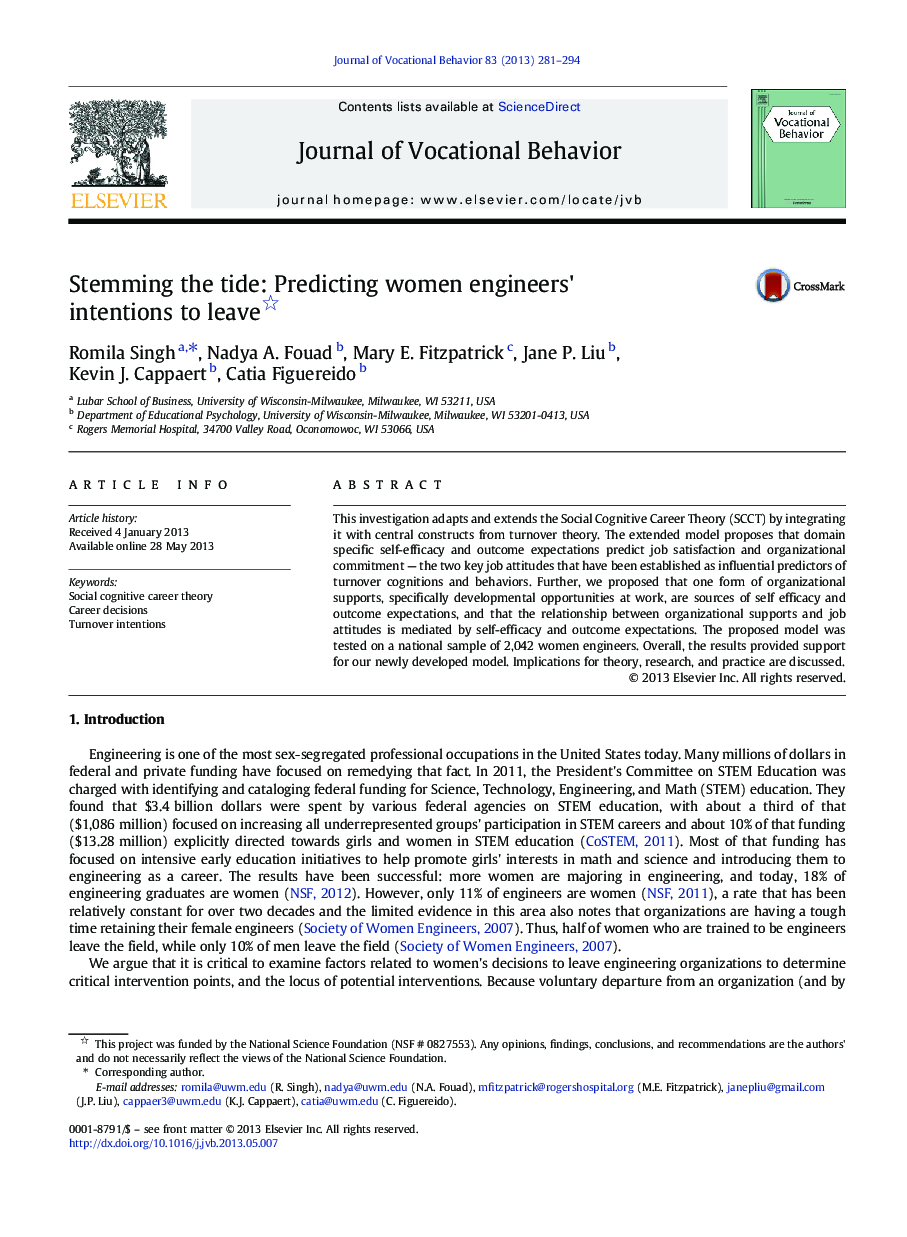| Article ID | Journal | Published Year | Pages | File Type |
|---|---|---|---|---|
| 886959 | Journal of Vocational Behavior | 2013 | 14 Pages |
•Extended Social Cognitive Career Theory to include organizational exit decisions•Extended affect driven turnover models to include agentic and motivational drivers•Results show self-efficacy and outcome expectations are positively related to job attitudes.•Job attitudes (job satisfaction and organizational commitment) are negatively related to turnover intentions.•Organizational supports directly influence self-efficacy and outcome expectations and indirectly job attitudes.
This investigation adapts and extends the Social Cognitive Career Theory (SCCT) by integrating it with central constructs from turnover theory. The extended model proposes that domain specific self-efficacy and outcome expectations predict job satisfaction and organizational commitment — the two key job attitudes that have been established as influential predictors of turnover cognitions and behaviors. Further, we proposed that one form of organizational supports, specifically developmental opportunities at work, are sources of self efficacy and outcome expectations, and that the relationship between organizational supports and job attitudes is mediated by self-efficacy and outcome expectations. The proposed model was tested on a national sample of 2,042 women engineers. Overall, the results provided support for our newly developed model. Implications for theory, research, and practice are discussed.
